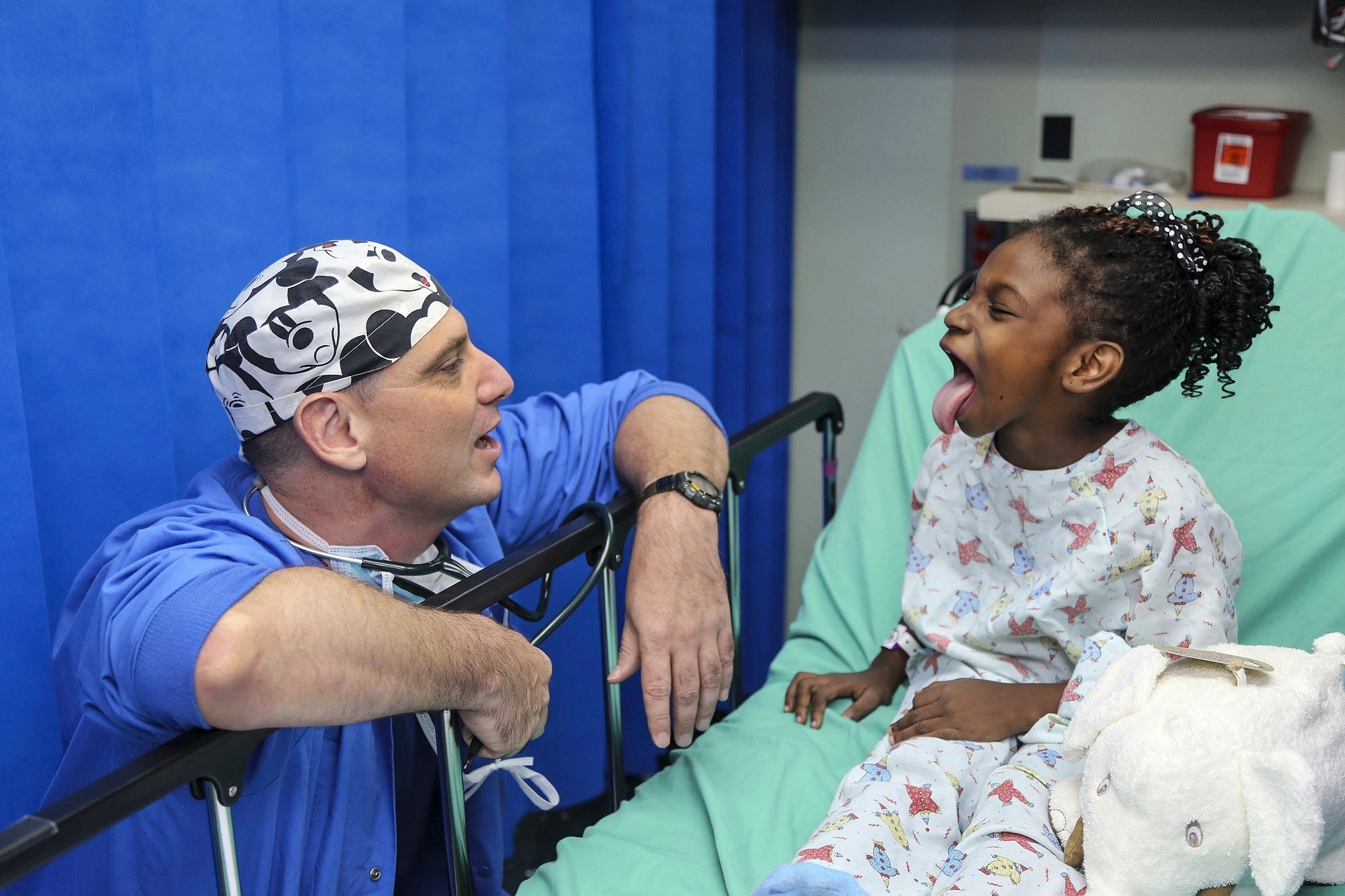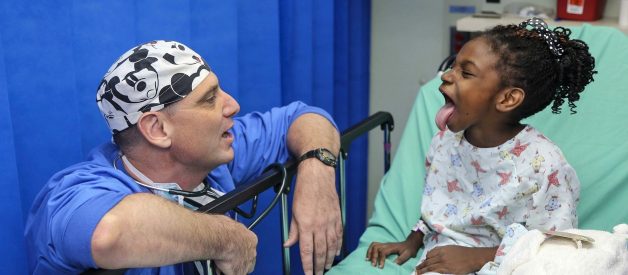
?A Child?s cry is heaven?s anguish, but his smile is heaven?s heart?
True it is, isn?t it? Have you ever looked into the eyes of a smiling child with a heavy heart? If not, do it. You will find solace. Children are far away from the complexities of this materialistic world, they know nothing but love and trust. When tears come out of their innocent eyes, it seems like everything is going wrong. This is the reason parents often become skeptical about pediatricians. After all, a child?s wellbeing depends upon his pediatrician to a great extent. Pediatric medical course is no doubt mandatory for being a professional. Simultaneously, a few primary skills are essential to serve the best treatment to the young patients.
Sick children cannot be happy. When they are going through any physical or mental discomfort, it can make them fussy and scared. Dealing with a fussy child can make their parents stressed and fearful as well. A skilled pediatrician knows how to put both the child and the parent at ease. It?s the doctor?s duty to help the parents set their budding stars on the road to a healthy and happy life.
Let?s have a quick glimpse at the primary skills required for being a good pediatrician besides a pediatric medical course:
1. Strong Communication Skill
A pediatrician should be able to communicate with both the children and their parents. In order to make communication smoother, it is really important to listen to the children and their guardians attentively. There?s a twist! A pediatrician should listen to the things that the children are not saying to her. Doctors are expected to catch up with the non-verbal cues while dealing with the children. Nonverbal cues are equally important as the verbal statements. A skilled pediatrician puts her questions in a straight and simple manner and observes the ways their young patients are addressing the questions. She needs to notice whether the child shows any sign of pain and anxiety or avoids direct eye contact. To make the interaction easier for the children, pediatricians are expected to speak on the level of a child.
2. Clear Understanding of Diverse Cultures
It doesn?t matter whether the pediatrician works in an urban setting or in a suburban environment; she must be ready to work with people coming from different cultures and backgrounds. She should not expect all of the parents will be able to talk to her in fluent English. Communicating in fluent English may be difficult for people, for whom, English is not the first language. Apart from this, a pediatrician should understand that culture practice exercises a great influence on the child?s health. Having a sound knowledge of languages other than English is an added benefit. A pediatrician must have sensitivity to other cultures. These are the skills that can be achieved or enhanced through work experience in diverse environments, with diverse cultures.
3. Problem-Solving Abilities
A pediatrician learns to treat some common illnesses from the professional Pediatric medical course. She might be dealing with these common issues repeatedly. Still, the doctor should take each patient like a new puzzle, even if the problem is a common one. Every child reacts to their problems in a different way. This is the reason every case is new even when the problem is same. She should be able to research on the case, analyze it from every possible aspect, and take a firm decision quickly. She should always be ready to update her knowledge and integrate all the information she is getting. Concentration is a key to gain mastery over these researching and analyzing skills, required for problem-solving abilities.
4. Organizational Skills
Pediatricians need exceptional organizational skills to harmonize patient loads with paperworks, calls, study, research, and lab results. A pediatrician should be able to prioritize which task needs to be done first on the basis of their importance. Expertize in time-management is a skill that will help her complete each appointment timely, and successfully. If she is the one who needs to supervise others, she must help the team to utilize most of the time effectively in an organized manner.
The skills noted above cannot be achieved simply by attending a reliable pediatric medical course. One should develop these skills along with undergoing the professional training. Apart from these, pediatricians can attend live CME conferences as well.
A Final Takeaway
Spending time with a child during his happy state gives us a heavenly feeling. But, it is a real challenge when the child is sick or, somehow, unhappy. Pediatricians need to accept this daunting challenge every day. That?s why they need to grow some basic skills outside their professional pediatric medical course. These skills will grow with experience and study of human beings (both children and adults). A good pediatrician can make our tomorrow happy and stable because children are the bone of our tomorrow ? our future society.
What do you think about this article? Please feel free to share your opinions!


